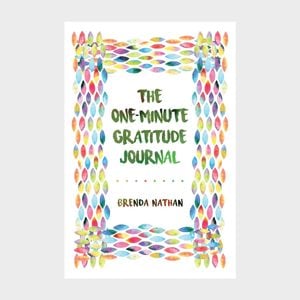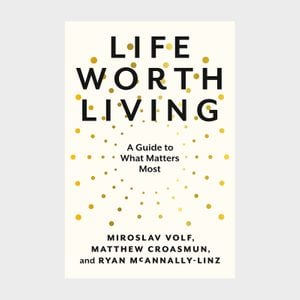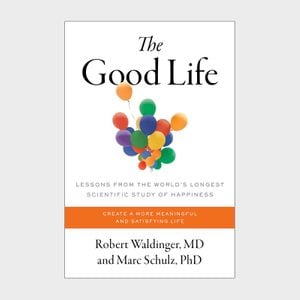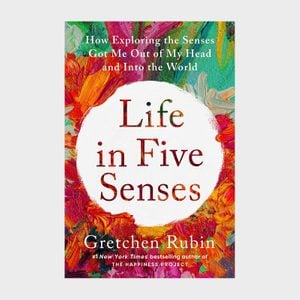How to Be Happier: Proven Ways to Boost Your Mood and Feel More Connected and Content
Updated: Apr. 19, 2024
You may think happiness just happens to you, but in truth, the keys to happiness are within your control. Here are the small steps that can change everything.
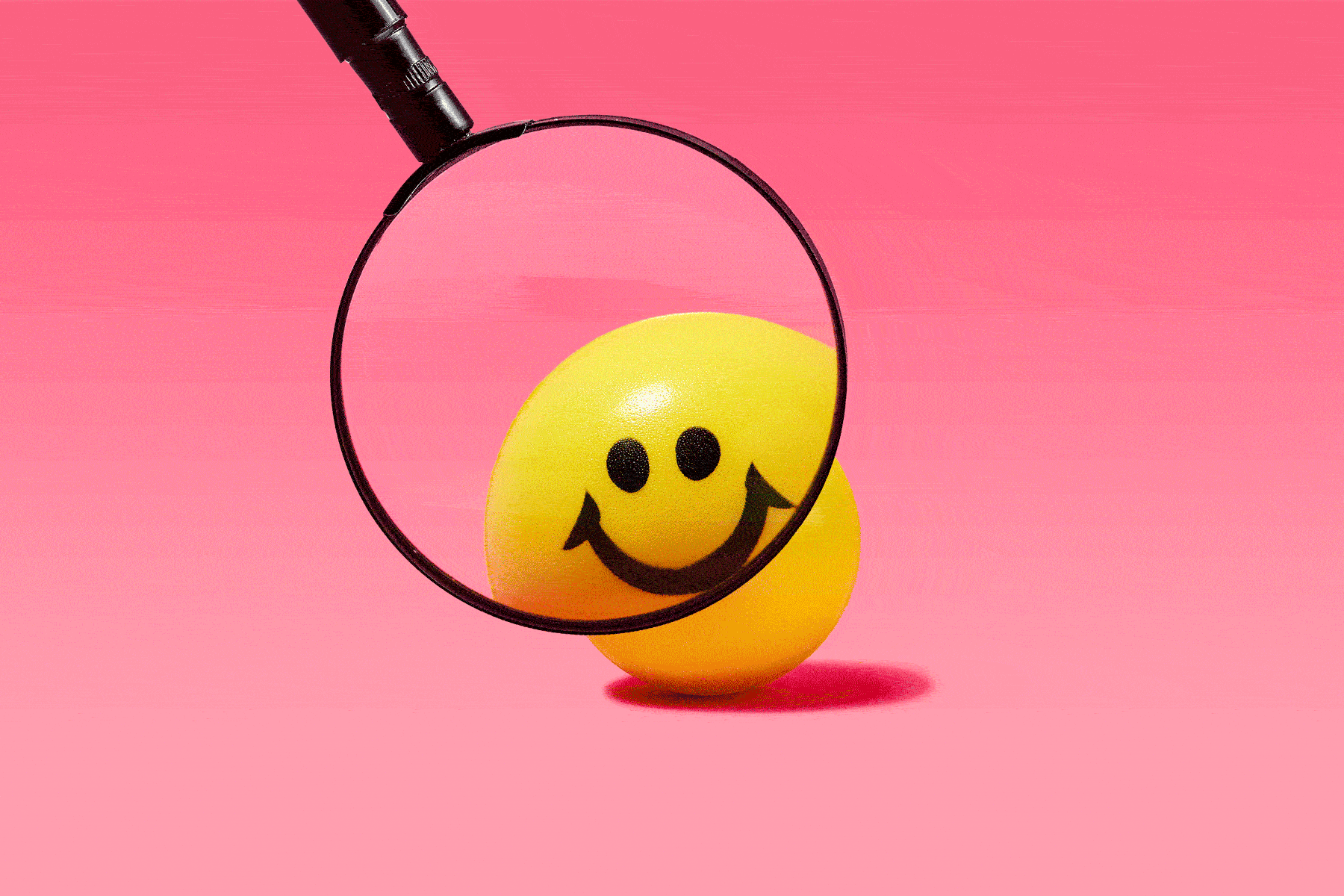
How to be happy—it’s one of the most fundamental human quests. So why does it feel so hard and, well, unhappy sometimes? It may be because we’re looking for happiness in all the wrong places. With all the things modern society offers in the name of happiness—from closets full of clothes to the internet to endless entertainment, we should be happier than ever, right? And yet Americans’ self-reported state of happiness declined all throughout the last half of the 20th century and then plummeted after 2010, according to the World Happiness Report.
Experts say that the first happiness disconnect lies in the structure of modern society. “It turns out that while happiness is the central concern for most people, it is not the central concern for most societies today,” says Robert Waldinger, MD, a Harvard psychiatrist, co-author of The Good Life and current director of the Harvard Adult Development Study, the longest-running study of happiness in the world. “The modern world prioritizes many things—wealth, power, popularity, success—ahead of the health and happiness of human beings.”
The second happiness disconnect comes from … ourselves. “Everyone thinks we know what will make us happy, when the truth is that people are notoriously bad at predicting what will bring them lasting happiness and satisfaction,” he says. Dr. Waldinger notes that in one oft-cited happiness survey, the most common answer people gave for what they thought would bring the most joy and pleasure was getting rich, followed by becoming famous, having a successful career, traveling a lot and having an “easy” life. The truth? Absolutely none of those things, on their own, brings happiness—especially not money, he says.
So What Does Make Us Genuinely Happy?
Happiness isn’t found in just one thing. “After studying hundreds of entire lives—from childhood until death—I can tell you that there are a huge range of factors that contribute to a person’s happiness,” says Dr. Waldinger. Not all these factors are under your direct control, but about 40% are, he says. And what you do with that 40% can determine 100% of how you feel about your life.
The question “What makes us happy?” is exactly what inspired Gretchen Rubin—now a world-renowned expert in the science of happiness—to write The Happiness Project, about her own year-long search to find happiness. “One day I had this realization that I was in danger of wasting my life. I had everything I could possibly want, but I wasn’t appreciating it,” she says. “I remember thinking, ‘What do I want from life, anyway?’ Well, I knew I wanted to be happy, but I had never thought about what exactly made me happy.”
That was nearly 14 years ago, and today Rubin is continuing to discover her purpose while finding immense joy and satisfaction in her day-to-day life. She’s written four more books about happiness, including the recent Life in Five Senses, and launched a successful podcast, Happier with Gretchen Rubin. “My life’s not perfect, of course, but perfection was never the goal—happiness is.”
We asked Dr. Waldinger and Rubin along with Ryan McAnnally-Linz, PhD, co-author of Life Worth Living: A Guide to What Matters Most and associate director of the Yale Center for Faith & Culture in New Haven, Connecticut, to share how, what and, most important, whom to focus on to feel happier and more fulfilled. From cultivating a positive attitude, learning how to build community, posting inspirational quotes on your vision board and so much more, we have the secrets to how to be happy … starting today.
Happier Relationships
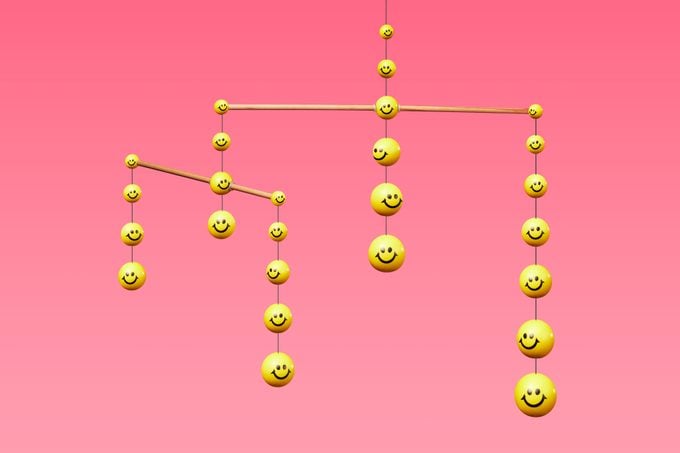
When it comes to happiness, nothing is more powerful than your relationships with other people. In fact, that was the main finding of the Harvard happiness study, says Dr. Waldinger. More than any other factors in the study, the quality of relationships people had was the greatest predictor of their happiness. In other words? The happiest people were those with the closest, loving, reciprocal relationships. It didn’t matter whether the relationships were with friends, family or lovers, or if a person had two or 200 people in their lives. What mattered is that they connected regularly with others on a meaningful level. If you want to know how to be happy, start with the tenet that “our relationships are everything,” he says.
From the moment you’re born, you’re learning how to bond with those closest to you and interact with your community. And if you ever took it for granted, the quarantine lockdowns during the pandemic really reinforced how absolutely vital our community is to our health and happiness, Dr. Waldinger says. The Harvard study found that people with a strong community not only lived longer lives—their lives were happier and healthier to the end, simple as that. Here’s how to have happier relationships.
1. Check in with friends
Friends provide love, support, fun, comfort, entertainment, a listening ear, an adventure buddy and so much more—yet we often let friendships slide as other commitments feel more pressing. It doesn’t have to be a lot of effort to make time for friends, though! Take, for example, one of Dr. Waldinger’s daily happy habits. “Each day I make a goal to consciously connect with one person,” he says. It doesn’t even need to be an hour-long gab sesh to be effective. “A text is OK, but a phone call or in-person check-in is preferable,” he says. When you can’t see your pal in person, text one of these “thinking of you” messages that will make anyone’s day.
2. Embrace freudenfreude
You’ve heard of schadenfreude—the feeling of taking pleasure in someone else’s misery—but if you want to be happier, instead try its opposite, freudenfreude. This funny-sounding word means finding pleasure in someone else’s success and happiness. Not only will this attitude of “a rising tide lifts all boats” strengthen your relationships with others, but it will also help you feel more confident and positive about yourself, says Dr. Waldinger. Compliment a work colleague on a job well done or take pleasure in your sister cooking yet another perfect meal.
3. Strike up a conversation with strangers
Building close relationships is foundational to happiness, but it turns out that relationships don’t have to be deep or long-term to give you joy. One of the more surprising findings from the Harvard study is that people experienced a significant happiness boost even after talking briefly to a stranger they would likely never see again. Just feeling connected is important, but there’s also a lot we can learn when we talk to strangers, adds Dr. Waldinger. The next time you’re out, try chatting with the barista about the weather or compliment your doctor’s receptionist on her earrings, then see what unfolds.
4. Go out of your way to be kind …
Acts of kindness are the building blocks that relationships and communities are made of, says McAnnally-Linz. And it doesn’t have to be a huge act of service to have a big impact—little acts of kindness add up, causing ripple effects and spreading kindness far beyond the person you originally helped. A few ideas you can try today: Hold the door open for someone, donate time or goods to a charity or take soup to an elderly neighbor.
5. … but know your limits
Learning how to set boundaries—your framework for what is acceptable behavior and the way you communicate that to others—is a crucial part of having healthy relationships, says Rubin. It’s a popular myth that if you really love someone, then it will be limitless or boundary-less, but the truth is that agreeing on basic ground rules for interacting makes stronger relationships and helps avoid codependency. It is OK to say no, politely of course, to invitations to events that don’t work for you for whatever reason.
6. Let go of grudges
“We’re fragile, which means it’s always possible for us to hurt one another. And we’re fallible, which means we’re prone to let one another down in a thousand different ways,” says McAnnally-Linz. “Combine those two facts, and it means that forgiveness is an essential part of even the smoothest relationships and of healing and happiness.” (This is also true when it comes to forgiving yourself, he adds.) But forgiving a wrong can be easier said than done, especially when the hurt runs deep and/or long.
The good news is that forgiveness isn’t just something that magically happens; it’s a skill you can work on, he says. Make it a goal to learn how to forgive: Read books, listen to podcasts, talk to a therapist or loved one, research philosophy and religion, or meditate on forgiveness. If you’re the one in the wrong, it’s equally important to know how to apologize—meaningfully.
Happier Mind

People mistakenly think their feelings control their minds, when really, the opposite is true—your mind informs your feelings, and you actually have far more control than you might think, says Dr. Waldinger. For instance, getting caught in a rainstorm may make you feel miserable for the rest of the day, bemoaning your bad luck and wet shoes. You may think something like, “Why me? Nothing ever goes right for me!” But you aren’t at the mercy of your feelings, and you can choose to think about it in a different way. You could laugh about it (“Guess I don’t have to shower today!”), see it as a blessing (“We really did need the moisture!”) or put it into a more realistic perspective (“Yes, I’m damp, and that’s no fun, but next time I’ll remember my umbrella!”). Here are more pro tips on how to think yourself happier.
7. Look on the bright side
“When we choose a positive attitude, our perspective can undergo a subtle shift—now we’re open to more possibilities,” says Dr. Waldinger. Not a natural optimist? He offers four simple tips to boost your positivity: First, tune into difficult feelings instead of ignoring them. Second, notice when things are going better than you expected. Third, consciously look for the good in other people, especially your loved ones. And fourth, allow yourself to be open to the possibility of being surprised by happy things happening in your life.
8. Count your blessings
“Expressing gratitude is one of the simplest and most powerful ways to instantly feel happier,” says Dr. Waldinger. Grateful people are happy people because they notice all the good in their lives and are less likely to compare themselves with others. Ready to get started? Send a thank-you note, start a gratitude journal or try one of these other tips for practicing gratitude that will have you feeling happier in no time.
9. Define your non-negotiables
“Non-negotiables are any deeply held beliefs that are so important to you that you will not compromise them. It’s a bold statement about what truly matters most to you,” says Rubin. When you define yours, all other decisions in your life become easier to make, allowing you to feel happier and more fulfilled. For example, say one of your non-negotiables is that you will never go into debt, then it makes cutting up your credit card a no-brainer.
10. Discover your motivation
Before you can find your “how” to happiness, you must first know your “why,” says McAnnally-Linz. “‘Motivation’ is both about understanding why you want to make changes for the better and finding the energy to make those changes happen.” Discerning your own motivations can feel easier said than done, though! One of his top tips? Discuss your goals and the desires behind them with a loved one—often, they can help you see things in a new way. “Sometimes just saying it out loud is enough to help you clarify what you’re looking for,” he says.
11. Clear your mind
Meditation is one of the top happiness tips that Dr. Waldinger not just studies but also swears by for himself. “I do a five-minute meditation every day to clear my mind,” he says. “Meditation enhances our everyday ability to notice the world around us.” Not sure how to meditate? Don’t make it complicated. Start by pondering this question, he suggests: “What is here that I’ve never noticed before?” Engage all five senses and consider what you might see, smell, hear, feel and taste, then direct your attention there. As you learn to tune into yourself and stay present in what’s happening now, your anxiety will melt away and you’ll be filled with a sense of calm and peace.
Happier Body
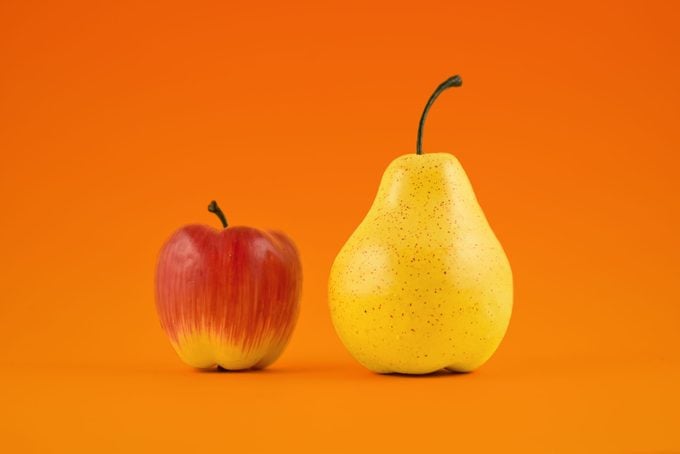
When you’re pondering how to be happy, know that your physical and mental health are inextricably connected. This can turn into a powerful self-reinforcing cycle, either for good or bad, says Rubin. Many of us are all too familiar with feeling down and then turning to junk food for comfort, only to suffer the physical effects and feel even worse. But that same power can be used to build and reinforce a positive cycle of happiness and physical health. For instance, taking care of your body through exercise, nutrition and stress management will lead to better mental health, and in turn, feeling happier will encourage you to keep up those good health habits.
12. Follow a happiness diet
Eating a diet high in sugar and processed foods but low in nutrients can increase feelings of depression, anxiety and aggression, according to a study published in The British Medical Journal. But the researchers also have good news: Eating a healthier diet can reverse this, leading to a happier mindset! The happiness diet consists of foods high in healthy fats, protein and nutrients, while minimizing foods high in sugar, processed fats and preservatives.
13. Supplement with mood-supporting vitamins and probiotics
Even for the most devoted green-smoothie drinkers, it can be hard to get all the nutrients you need every day. Thankfully, there are some mood-supporting vitamins and probiotics you can take that can fill in some of those gaps, helping you feel happier, calmer and more focused. Probiotics are a particularly powerful supplement for mental health and well-being, as they build and support your gut microbiome, which produces 80% of the body’s serotonin—one of the “happy” brain chemicals.
14. Get a good night’s sleep
People vastly underestimate the importance of getting a solid seven to eight hours of sleep when it comes to mental health and mood, says Rubin. In fact, it’s so important to her that it’s included as one of her top five foundational happiness habits in her book Better Than Before. “I’m a sleep zealot,” she says. “I’ve learned the hard way that it’s hard for me to feel happy and to stick to my good habits when I’m exhausted.” Insomniac? Start by investing in a good mattress, then follow these other tips to get a good night’s sleep.
15. Start moving
When it comes to instant mood boosters, it doesn’t get any faster or more powerful than moving your body, says Dr. Waldinger. He shares that he learned this for himself during the COVID-19 pandemic. “Going for a walk outdoors every day was the surest way for me to feel less anxious and happier,” he says. Any type of exercise can give you this happiness bump, but exercise that elevates your heart rate will get those endorphins pumping a little faster. (Think: jogging, dancing, swimming or flow yoga.)
16. Breathe in fresh air
Heading outdoors, even if you’re not exercising, is powerful happiness medicine. In fact, last year Rubin challenged her podcast listeners to a “Go outside 23 in ’23 challenge,” where the aim was to spend a minimum of 23 minutes outdoors daily, regardless of the weather. There’s real science to back up this happiness theory. People who spent at least two hours per week doing any kind of recreation outdoors reported significantly better physical and mental health, regardless of whether they lived in urban or rural places, their gender, age, socioeconomic status, pre-existing illnesses or level of fitness, according to a 2019 study published in Nature. Translation: Everyone felt better after spending time in nature.
Happier Habits

According to Rubin, habits are the invisible architecture of daily life. “We repeat about 40% of our behavior, so our habits shape our daily existence and our future,” she says, adding that making small happy changes to your habits can ultimately be life-changing. Here are some happy habits to try.
17. Break out of your comfort zone
People who have a growth mindset and enjoy learning are more likely to report being satisfied with their lives, says Dr. Waldinger. Being open to trying new things keeps you from feeling stagnant, engages your mind and encourages you to take positive risks. Even something as small as changing up the route of your morning walk or ordering takeout from a different restaurant on a Friday night can help shake things up and keep life fresh. Looking for that first push? Let these comfort zone quotes inspire you to push past fear and embrace change.
18. Experiment with a new hobby
Hobbies are one of the criteria that the Harvard researchers have studied for nearly 100 years, and they found that having at least one hobby you enjoy doing is linked with feeling happier. It doesn’t matter so much what you choose—be it painting, gardening or ballroom dancing—as long as you find a new hobby that feels enjoyable. But the real happiness magic may come from the fact that hobbies often have the added bonus of building and strengthening relationships with others—the No. 1 guaranteed way to be happier, Dr. Waldinger says. (Psst … it’s OK if you fail spectacularly at your new pastime, as long as you have fun doing it!)
19. Unplug from social media
Social media can be a good tool for building relationships if you’re using it to actively interact with others by saying “Happy birthday” or cheering on successes, says Dr. Waldinger. Mindlessly scrolling, on the other hand, has been shown to increase feelings of depression and anxiety. Plus, the constant pinging of digital notifications of any kind disrupts your attention and lessens your connection with others because you’re less present. Worse, you get a little dopamine rush with every ping—and it’s addictive. Take time every day to turn off all your electronics and detox digitally. Meditate, read a (paper) book, play board games with your family or take a cat nap—all things also associated with a happier mood.
20. Give back to others
Health experts from a wide variety of fields agree that helping others provides many benefits for body and mind. Making time to volunteer is worth it: It helps you feel happier and less depressed, reduces blood pressure and improves heart health, teaches you new skills, helps you live longer, protects your brain from cognitive decline and gives you a sense of purpose—just to name a few benefits.
21. Take care of yourself
You can’t pour water from an empty bucket, so it’s important to nurture and love yourself just as you do other important people in your life, says Rubin. How you practice self-care is based on your unique needs and wants. Take a moment to jot down five things that make you feel truly refreshed. Need help starting? Take a walk outdoors, take a bubble bath, write in a gratitude journal, work on a craft or home project, or tend to your garden.
Happier Work

The average American spends 16% to 20% of their lives working, according to 2022 data from the American Bureau of Labor, so you don’t want to spend that much of your precious life slogging through a job you hate. While you won’t love every moment of your job, or even every job (they do call it “work” for a reason), there are some ways to make for happier work.
22. Find your own secret sauce to work-life balance
From family to work to hobbies, juggling all your many obligations can feel exhausting and guilt-inducing. One way to jump off the hamster wheel of endless busyness is to learn to prioritize work-life balance, says Rubin. Start by writing down your core values, and then make a list of your top priorities based on those values, she says. This ensures that the things that matter the most to you stay at the top of your to-do list. For example, if you highly value your relationship with your children, then attending their school play or soccer game may take precedence over catching up on work emails.
23. Move on from multitasking
“Multitasking is a myth. The latest research in neuroscience shows that our conscious minds simply cannot do more than one thing at a time,” says Dr. Waldinger, adding that what feels like multitasking is actually just quick mind switching back and forth that makes you less effective at both tasks. The solution? Follow time-management strategies. “Instead of flitting from task to task like a hummingbird, we tell people to try to be focused, like an owl,” he says.
24. Set goals in line with your values
Goals are powerful happiness tools. Making goals is the result of knowing your core morals and values and then prioritizing your life based on achieving what’s truly important to you, says Rubin. It goes back to the old adage: It won’t matter if you spend your whole life climbing a ladder if it’s leaning against the wrong building. “Goals give us clarity and purpose,” she says, adding that you need to record or write down goals for them to be truly effective.
Set goals by taking one of your top priorities—for instance, adding to your field of work in a meaningful way—and then break it down into smaller steps, like finding a job in your preferred field, getting a promotion and publishing research. From there, set smaller daily, weekly and monthly goals that you can work on regularly. In this example, it may be sending out a certain number of résumés per week, signing up for a course to increase your skill set or attending a conference to network.
25. Define your purpose
There comes a time (or multiple times) in everyone’s life where they have to answer the question “What is the point of my life?” Answering these types of questions about the meaning of life—of your life—isn’t just esoteric, it’s practical, says McAnnally-Linz. “To be purposeless is to be rudderless,” he says. Learning to find your purpose helps you define your life goals and stay focused on achieving them, especially at work. To get more clarity on your purpose, start by considering your core values and how they factor into your day-to-day.
Happier Home

Your home should be your happy place. Yet when you feel overwhelmed by unmade beds, dirty dishes and piles of laundry, it can feel like anything but. Making small changes to make your home happier will make it easier to focus on moments of joy and have a positive attitude. Here are some expert tips for truly making your home where your heart is.
26. Ditch the clutter
Things that take up space in your home also take up space in your mind, says Rubin. Visual clutter increases feelings of anxiety and frustration, while clean spaces feel peaceful and focused. Making the decision to declutter is the easy part; actually doing it can be more challenging. Some easy expert tips to get you started: Clean out your medicine cabinet, go through that stack of mail and finally donate that box of old clothes that has been sitting in your closet for months.
27. Organize your space
Decluttering and tossing things is half the battle. The other half is organizing what’s left! Seeing your space tidy and organized will make you feel instantly happier and more relaxed. To make the task less daunting, focus on one item at a time, like your spice cabinet or the closet with a floor full of shoes. Toss or donate what you don’t use, then invest in things like a spice rack and shoe storage tower—and use them! When you’re ready to tackle more, we have tips on organizing your pantry, kitchen and bathroom.
28. Rock out to a happy song
The science has spoken: Happy music makes you feel happy. When you listen to happy songs, it triggers happy memories, reduces anxiety, lowers stress hormones and even makes you feel younger (and who doesn’t feel happy about that?). This is why listening to your favorite song is one of Rubin’s top happiness tips. Try a confidence-boosting song like Lizzo’s “Good as Hell,” a feel-good classic like the Beatles’s “Here Comes the Sun” or any other tune on our list of happy songs. Bonus points if you dance along like no one is watching!
29. Queue up a happy movie
You probably don’t need us to remind you that watching a feel-good movie can have a powerful effect on your mood. When you watch happy films, it reminds you of happy times in your life and can make you feel more hopeful about the world. Watching funny movies is a surefire way to laugh, and not to be cheesy, but laughter really is the best medicine—physically and mentally! Add one of these happy movies to your to-be-streamed list tonight.
30. Spend time with furry friends
One surefire way to make a home feel happier? A furry friend! Pets can improve mental health by providing unconditional love, companionship, exercise, snuggles and laughs, says Dr. Waldinger. (He and his wife have beloved birds.) Dogs, in particular, have a powerful effect on stress levels. People who regularly interacted with pets reported higher well-being—improved focus, less depression and anxiety, and a happier mood—according to a 2018 research analysis done by the National Institutes of Health. Not ready to adopt a pet? Just looking at these cute dog photos is guaranteed to put a smile on your face.
Start Now
One thing all our experts emphasized is how important it is to not wait to start your search for greater happiness. “Too many people say, ‘I’ll be happy when …’ and that’s a problem,” says Rubin. Instead of waiting for your circumstances to change, change your circumstances—start today, making one small change at a time, and you’ll begin to feel happier immediately.
“So many people ask me ‘Is it too late for me to be happy?’ and the answer is a resounding ‘No!'” says Dr. Waldinger. “Happiness isn’t about what happens to you but how you deal with it. The good life is forged from precisely the things that make it hard. You can choose to be happier, starting right now.”
Sources:
- World Happiness Report
- Robert Waldinger, MD, Harvard psychiatrist, co-author of The Good Life and current director of the Harvard Adult Development Study
- Gretchen Rubin, happiness expert, author of The Happiness Project and Life in Five Senses, and host of the podcast “Happier with Gretchen Rubin“
- Ryan McAnnally-Linz, PhD, co-author of Life Worth Living: A Guide to What Matters Most and associate director of the Yale Center for Faith & Culture
- Bureau of Labor Statistics: “American Time Use Survey”
- Nature: “Spending at least 120 minutes a week in nature is associated with good health and wellbeing”
- The British Medical Journal: “Food and mood: how do diet and nutrition affect mental wellbeing?”
- National Institutes of Health: “The Power of Pets: Health Benefits of Human-Animal Interactions”




























